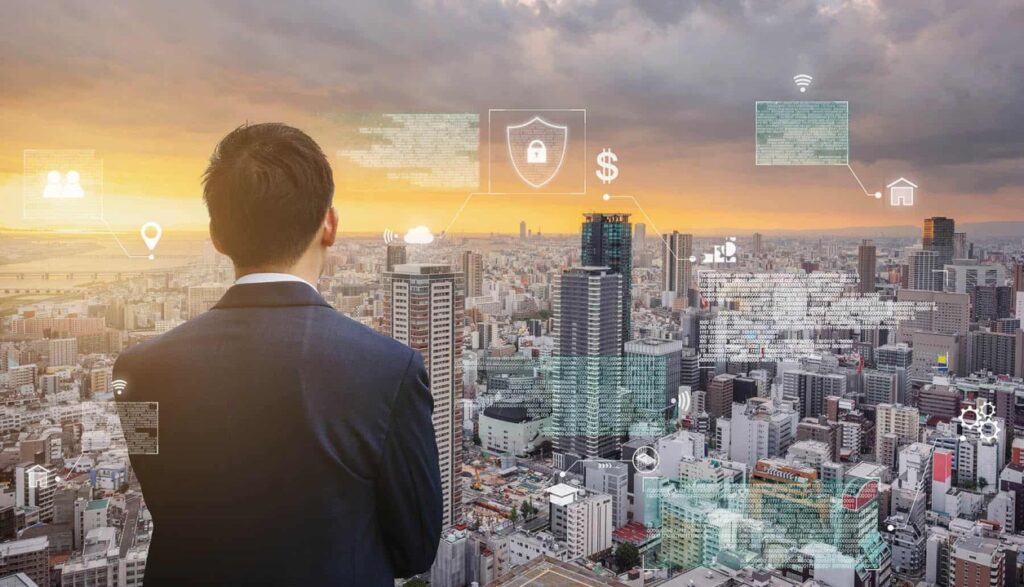Within the real estate sector, the ubiquitous impact of technology has brought about a revolutionary change that has redefined the terrain of a very traditional industry. In recent times, the industry has relied heavily on the implementation of cutting-edge technologies to promote efficiency, transparency, and innovation.
Technological innovations have transformed the marketing, transaction, and management of properties, resulting in streamlined operations such as blockchain-based property records and virtual reality (VR) tours. Stanley Bae thinks Real estate and technology are dynamically combining to create a new era of possibilities and opportunities for the sector, bringing about a paradigm change.

The implantation of VR
The traditional methods of property viewing and showcasing have been drastically changed by the incorporation of technology into the real estate industry. Virtual reality (VR) experiences and augmented reality (AR) apps have made it possible for potential buyers to take part in virtual property tours, which allow them to explore every inch of a property from the comfort of their own homes.
This innovative method has shortened the time it takes to find a property, made decision-making easier, reduced the need for in-person visits, and accelerated the sales cycle. These developments have not only changed the game for purchasers, but they have also given developers and real estate brokers the ability to reach a wider audience and overcome regional boundaries.
Empowered with analytics
Furthermore, real estate professionals may now obtain deep insights into buyer preferences, market trends, and investment patterns thanks to the development of big data and analytics. Stakeholders may now make data-driven decisions on anything from pricing tactics to property development plans by utilizing predictive analytics. The real estate ecosystem has become more flexible and responsive as a result of stakeholders’ ability to predict market swings, spot new investment opportunities, and reduce potential risks through advanced algorithm technologies.
Incorporation of blockchain
The incorporation of blockchain technology has revolutionized the way real estate transactions are conducted and recorded. By leveraging blockchain’s decentralized and secure ledger system, the industry has witnessed a significant reduction in fraudulent activities and a streamlined process of property documentation.
Smart contracts, enabled by blockchain, have automated various stages of property transactions, ensuring transparency, authenticity, and traceability. The immutable nature of blockchain records has instilled a sense of trust among buyers and sellers, thereby fostering a more secure and efficient environment for real estate dealings.
The Internet of Things
In addition, the proliferation of Internet of Things (IoT) devices has enabled the development of smart homes and buildings, elevating the concept of modern living to unprecedented heights. Integration of IoT devices such as smart thermostats, security systems, and energy-efficient appliances has not only enhanced the functionality and sustainability of properties but has also significantly augmented their market value. The seamless connectivity facilitated by IoT has redefined the concept of property management, allowing real estate owners to remotely monitor and control various aspects of their properties, leading to enhanced operational efficiency and cost savings.
Furthermore, the emergence of real estate fintech solutions has streamlined the financing and mortgage processes, making them more accessible and inclusive.
The advent of online mortgage platforms, peer-to-peer lending networks, and digital payment systems has simplified the borrowing process, enabling a wider demographic to invest in real estate. This democratization of financial services has not only accelerated property transactions but has also fostered a more inclusive and diverse real estate market, catering to the needs and aspirations of a broader spectrum of potential homeowners and investors.
However, while the integration of technology has undeniably revolutionized the real estate industry, it has also brought forth a set of challenges and considerations that demand careful attention. Concerns regarding data privacy, cybersecurity, and ethical implications of automated decision-making processes remain at the forefront, calling for robust regulatory frameworks and industry standards to ensure the responsible and ethical deployment of technology within the sector.
The introduction of technology in the field of real estate has transcended conventional boundaries, ushering in an era of innovation, efficiency, and transparency. The dynamic interplay between technological advancements and real estate practices has not only redefined the way properties are marketed, transacted, and managed but has also augmented the overall customer experience and industry dynamics.
The conclusion
Stanley Bae thinks as the industry continues to embrace technological evolution, the imperative lies in striking a balance between innovation and ethical responsibility, fostering an ecosystem that is not only technologically advanced but also sustainable, secure, and inclusive. Embracing this technological revolution will undoubtedly pave the way for a dynamic and resilient real estate sector poised for continued growth and transformation in the years to come.



